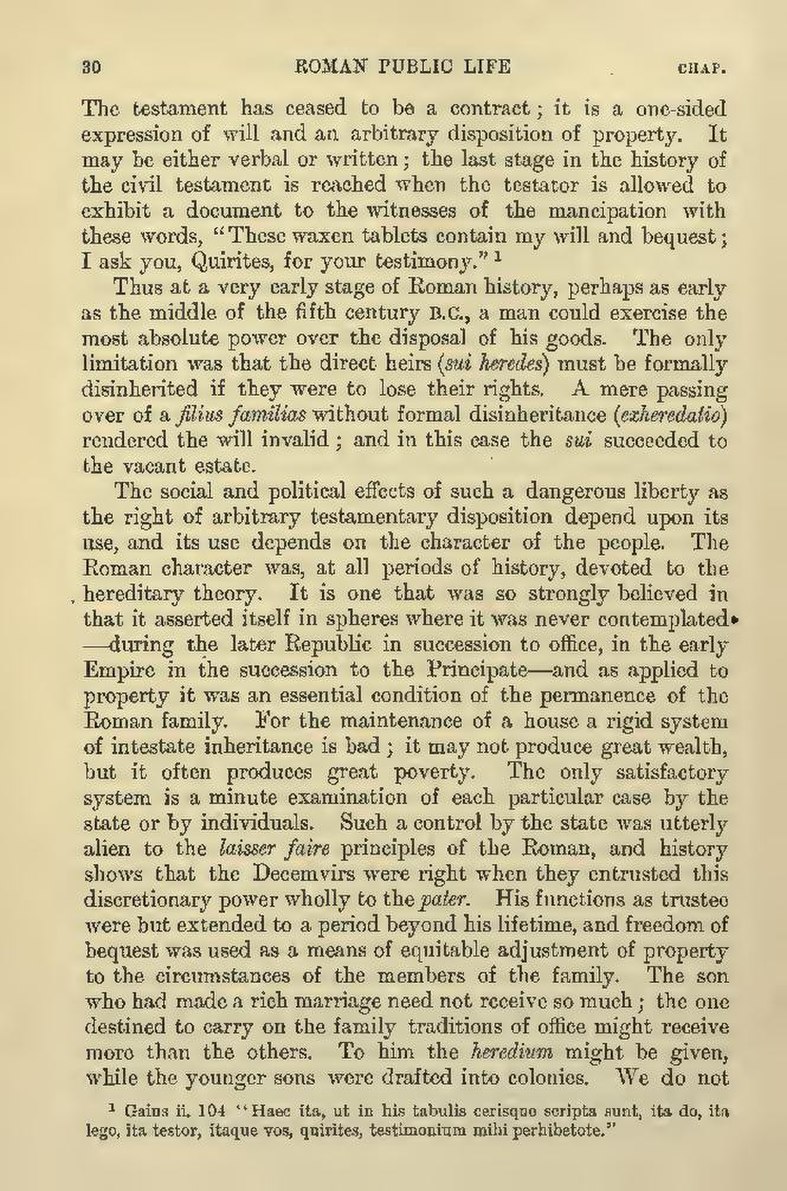The testament has ceased to be a contract; it is a one-sided expression of will and an arbitrary disposition of property. It may be either verbal or written; the last stage in the history of the civil testament is reached when the testator is allowed to exhibit a document to the witnesses of the mancipation with these words, "These waxen tablets contain my will and bequest; I ask you, Quirites, for your testimony."[1]
Thus at a very early stage of Roman history, perhaps as early as the middle of the fifth century B.C., a man could exercise the most absolute power over the disposal of his goods. The only limitation was that the direct heirs (sui heredes) must be formally disinherited if they were to lose their rights. A mere passing over of a filius familias without formal disinheritance (exheredatio) rendered the will invalid; and in this case the sui succeeded to the vacant estate.
The social and political effects of such a dangerous liberty as the right of arbitrary testamentary disposition depend upon its use, and its use depends on the character of the people. The Roman character was, at all periods of history, devoted to the hereditary theory. It is one that was so strongly believed in that it asserted itself in spheres where it was never contemplated—during the later Republic in succession to office, in the early Empire in the succession to the Principate—and as applied to property it was an essential condition of the permanence of the Roman family. For the maintenance of a house a rigid system of intestate inheritance is bad; it may not produce great wealth, but it often produces great poverty. The only satisfactory system is a minute examination of each particular case by the state or by individuals. Such a control by the state was utterly alien to the laisser faire principles of the Roman, and history shows that the Decemvirs were right when they entrusted this discretionary power wholly to the pater. His functions as trustee were but extended to a period beyond his lifetime, and freedom of bequest was used as a means of equitable adjustment of property to the circumstances of the members of the family. The son who had made a rich marriage need not receive so much; the one destined to carry on the family traditions of office might receive more than the others. To him the heredium might be given, while the younger sons were drafted into colonies. We do not
- ↑ Gaius ii. 104 "Haec ita, ut in his tabulis cerisque scripta sunt, ita do, ita lego, ita testor, itaque vos, quirites, testimonium mihi perhibetote."
